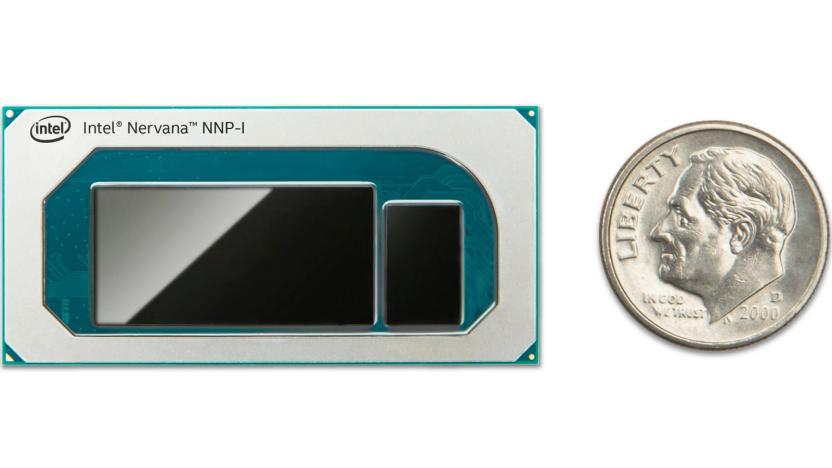inference
Latest

Facebook makes it easier to see how much it knows about you
Facebook will let you view and download more of the data it collects about you, the company revealed today. It's expanding the Download Your Information tool on Facebook and the Download Your Data tool on Instagram to include more of the info it tracks as you use those platforms -- like what you add to your profile or which Pages or posts you like. That info is used to personalize what you see on Facebook and Instagram, but it also raises some data privacy concerns.

Intel unveils its first chips built for AI in the cloud
Intel is no stranger to AI-oriented chips, but now it's turning its attention to those chips that might be thousands of miles away. The tech firm has introduced two new Nervana Neural Network Processors, the NNP-T1000 (below) and NNP-I1000 (above), that are Intel's first ASICs designed explicitly for AI in the cloud. The NNT-T chip is meant for training AIs in a 'balanced' design that can scale from small computer clusters through to supercomputers, while the NNP-I model handles "intense" inference tasks.

Nokia toys with context-aware smartphone settings switch, Jigsaw provides better context for apps like this
If Intel prognosticated correctly, context is the future of apps -- your device's array of sensors will determine where you are and what you're doing, and clever programs will guess from there. Problems arise, however, when one tries to run those accelerometers, microphones, radio antennas and GPS tracking devices constantly on the battery life of an average smartphone and determine what the raw data means, and that's where a group of Dartmouth researchers (and one Nokia scholar) are trying to stake their claim. They've got a bundle of algorithms called Jigsaw for iPhone and Symbian that claims to be able to continually report what you're up to (whether walking, running, cycling or driving) no matter where you place your device, and only pings the sensors as needed based on how active you are. (For better or for worse, Jigsaw also dodges the privacy concerns Intel's cloud-based API might raise by storing all personal data on the phone.) Of course, we've had a very basic version of context-aware functionality for years in apps like Locale for Android and GPS-Action for Symbian -- which modifies your smartphone settings under very specific conditions you specify. Now, Espoo's doing much the same with an app called Nokia Situations. Presently in the experimental stage, Situations is a long ways away from the potential of frameworks like Jigsaw, but here you won't have to wait -- you can download a beta for Symbian^3, S60 5th Edition and S60 3.2 at our source links without further delay.

Apple granted patent for handheld that recognizes your hands
You could probably fill a book with Apple patent applications that never amounted to anything, but here's one that's at least been granted -- a "handheld device" that uses capacitive sensors to recognize your identity just by the way you hold it, and subsequently personalize the device's buttons and settings to your hand based on your user profile. That's all that's actually been patented here, but the general idea is a little more grand -- you could theoretically grip a handheld with either hand, and it would automatically generate "button zones" under each finger using sensors (or disappearing buttons, perhaps) baked right into the chassis, making cries of "you're holding it wrong" hopefully fade into obscurity. Still, it's not the first time we've seen Cupertino reaching for digit recognition and we're sure it won't be the last, so we'll just file away our enthusiasm until or unless Jobs announces it on stage.

Intel testing context-aware API for smartphones and tablet PCs, teams with Fodor on dynamic travel app
Intel CTO Justin Rattner just described a future where your devices know more about you -- not just "where you are," but "where you're going," to use his words. Intel's working on a context-aware API that uses not only physical smartphone and tablet sensors (like accelerometers and GPS) but also "soft sensors" including social networks and personal preferences to infer what you're doing and what you like, and deliver these inferences to a "context engine" that can cater to your tastes. It's presently being tested in an app by travel guide company Fodors on a Compal MID that dynamically delivers restaurant and tourism suggestions based on these factors, and also in a social cloud service (demoed on a prototype tablet) that can show you what your friends are up to (using game-like avatars!) on the go. Rattner told us that the API itself is not quite like the typical experiments out of Intel Labs -- while there aren't presently plans to make the API publicly available, he said the context engine was made to commercial software standards specifically so it could become a real product should the technology pan out. In other words, Intel just might be agreeing to do all the heavy lifting for a new generation of apps. How sweet. %Gallery-102358% %Gallery-102357%

Intel's smart TV remote will recognize you, tailor content to your wishes
It's all about how you hold it, apparently. Intel's Labs have churned out a proposal for a new user-identifying system to be embedded into remote controls. Given a bit of time to familiarize itself with particular users, this new motion sensor-equipped channel switcher is capable of correctly recognizing its holder just by the way he operates it. Taking accelerometer readings every 100 nanoseconds, the researchers were able to build a data set of idiosyncrasies about each person, which would then be applied the next time he picked up the remote. Alas, accuracy rates are still well short of 100 percent, but there's always hope for improving things and for now it's being suggested that the system could be employed to help with targeted advertising -- which is annoying anyway, whoever it may think you are.

